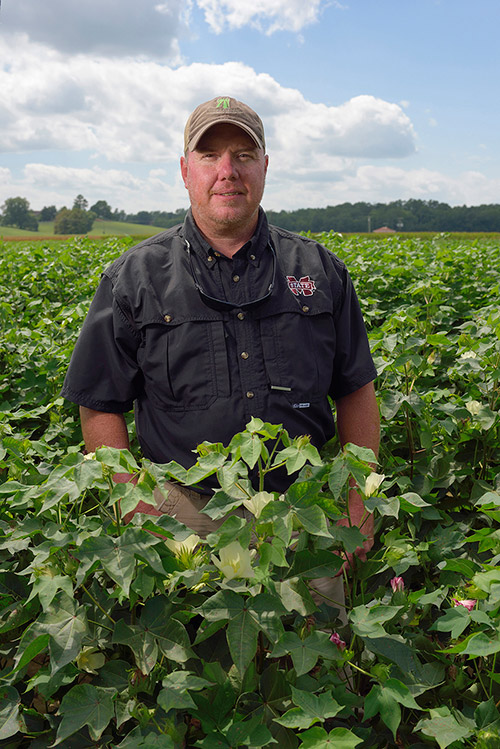Information Possibly Outdated
The information presented on this page was originally released on June 17, 2020. It may not be outdated, but please search our site for more current information. If you plan to quote or reference this information in a publication, please check with the Extension specialist or author before proceeding.
Extension entomologist appointed to federal advisory committee

A Mississippi State University research professor is a newly appointed member to the Environmental Protection Agency’s Farm, Ranch, and Rural Communities Committee. U.S. EPA Administrator Andrew Wheeler and U.S. Sen. Cindy Hyde-Smith (R-Miss.) announced today [June 17] the appointment of Jeffrey Gore, one of 33 new committee members.
Gore, an entomologist with the Mississippi Agricultural and Forestry Experiment Station and MSU Extension, is based at Mississippi State’s Delta Research and Extension Center in Stoneville. Established in 2008, the FRRCC provides independent policy advice, information, and recommendations to the EPA administrator on a range of environmental issues and policies that are of importance to agriculture and rural communities. Hyde-Smith, who holds seats on the Senate Agriculture and Senate Energy and Natural Resources Committees, recommended Gore for the FRRCC position.
“One of my priorities for EPA has been to restore trust for our agency among agricultural stakeholders and rural communities,” said Wheeler. “President Trump has been clear about the administration’s commitment to agriculture and rural America, and as part of that commitment, I am excited to reinstate the Farm, Ranch, and Rural Communities Committee in 2020 with full membership. This committee will provide valuable input on how EPA’s decisions impact rural America, and I look forward to receiving the committee’s recommendations.”
To build a broad and balanced representation of perspectives for the FRRCC, EPA selected members to represent a variety of relevant sectors from across the U.S., including agricultural stakeholders and allied industries; academia; state, local, and tribal government; and nongovernmental organizations. In selecting committee members, EPA reviewed the quality of applications received for nearly 150 nominations, and considered qualifications such as: whether candidates have experience in agricultural issues of relevance to EPA programs, are actively engaged in agricultural production, have related leadership experience, demonstrated ability to examine and analyze complex environmental issues with objectivity and integrity, have experience working on issues where building consensus is necessary, and are able to volunteer time to the committee’s activities.
The committee had no current members at the time of solicitation; therefore, these 33 nominees will constitute a new committee, and will each serve two- or three-year terms beginning on June 15, 2020.

